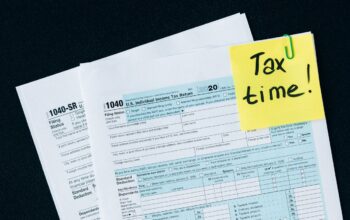Discover post-move finance habits that help build stability and ensure financial security. Learn how to budget and adjust your finances.
Moving to a new home is an exciting time filled with new beginnings, but it can also come with financial challenges. After the physical move is complete, it’s easy to overlook the financial aspects that come with settling in, including hidden relocation costs that can add up unexpectedly. Post-move finance habits play a vital role in building long-term stability and ensuring that you don’t face unnecessary financial strain after your move. If you’ve moved across the street or relocated to a different city, establishing good financial routines early on can make all the difference in your ability to manage your money effectively.
Top 8 Post-Move Finance Habits That Build Stability
In the rush of unpacking and getting settled, it’s important to pause and think about your financial future. Post-move finance habits help you adjust to your new living situation without the added stress of overspending or missing important payments. From budgeting and saving to managing debt and tracking spending, these habits ensure that you stay on top of your finances. Explore practical steps you can take to manage your finances after a move, helping you stay financially secure and avoid common pitfalls many face during this time.
Organize and Settle Your Finances Early
After your move, the first step in establishing stability is organizing your finances. Set up your new address with the bank, update your billing information, and review all subscriptions and recurring payments. This is the ideal time to evaluate any pending debts, such as credit card bills or loans. To avoid any disruptions, it’s important to prepare your finances by setting up automated payments to ensure you don’t miss any bills, which can negatively affect your credit score.
One of the best post-move finance habits is to list all your financial responsibilities in a notebook or a budgeting app. This can include your rent or mortgage, utilities, car payments, and any other significant expenses. Having a clear view of your obligations will help you create a realistic budget.
Create a New Budget Based on Your New Expenses
When you move, your living expenses will likely change. Your rent or mortgage might be different, your transportation costs could increase, or you might face new living expenses in a different city. Review your income and expenses carefully and create a new budget that reflects these changes.
Start by accounting for your fixed expenses like rent, utilities, and transportation. Then, include flexible categories such as food, entertainment, and savings. A well-thought-out budget will help you stay on track and avoid overspending. Regularly reviewing your budget will ensure that you’re adjusting your spending as needed.
Build an Emergency Fund
Having an emergency fund is one of the best financial habits you can adopt. After a move, unexpected expenses often arise, such as car repairs, medical costs, or the need for new furniture. Building a cushion of three to six months’ worth of living expenses can provide peace of mind and keep you from relying on credit cards or loans in case of an emergency.
If you haven’t already started an emergency fund, now is the time to prioritize it. Even if you can only set aside a small amount each month, the goal is consistency. Over time, you’ll have a safety net to fall back on during financial setbacks.
Monitor Your Spending and Avoid Unnecessary Expenses
As you settle into your new home, it’s easy to let small purchases add up quickly. This is especially true if you’re adjusting to a new area with different cost-of-living factors. Start tracking all your spending, whether it’s on food, entertainment, or daily purchases.
Use apps like Mint or YNAB (You Need A Budget) to categorize your expenses and track where your money is going. Reviewing your spending habits regularly will give you insights into areas where you can cut back. Avoid impulse buys and reconsider large purchases until you’re fully settled.
Additionally, relocating without overspending and making cost-effective decisions in your new place can help stabilize your finances. Opt for more affordable choices when moving across the country on a budget and avoid overspending on unnecessary luxuries in the first few months.
Review Your Credit and Debt Situation
Moving often means taking on new financial responsibilities, such as higher living costs or the need to buy new furniture or appliances. This can lead to debt if you aren’t careful. After the move, it’s essential to review your credit report and debt situation. Start by checking your credit score and understanding any impact your recent move may have on it.
Pay off any high-interest debt as soon as possible, and avoid taking on new debt unless necessary. If you have multiple credit cards or loans, consider consolidating them to reduce interest payments. Keeping debt manageable is a key post-move finance habit that will help you stay financially stable in the long run.
Save for Future Goals
As you adjust to life in your new place, it’s important to keep long-term financial goals in mind. Whether it’s saving for a vacation, building a down payment for a home, or contributing to your retirement fund, creating savings goals helps guide your financial decisions.
Automate your savings as much as possible to make saving easier. Set up monthly transfers to your savings or retirement accounts, so you’re consistently working towards your goals. Having a clear financial plan will help you stay focused on what matters most and prevent you from getting distracted by short-term wants.
Take Advantage of New Financial Opportunities
Moving to a new place can open up opportunities to grow your finances in ways that weren’t possible before. For example, you may find new job opportunities that offer higher salaries or better benefits. This could give you more room to save or pay off debt.
Additionally, if you’ve moved to a state with a lower tax rate or no income tax, you might see an immediate boost to your disposable income. Be sure to take advantage of these new financial opportunities by adjusting your budget and investing the extra savings wisely.
Stay Flexible and Adjust Your Finances as Needed
Finally, be prepared to adjust your financial habits as needed. Life after a move can be unpredictable, and your circumstances may change. For instance, you may decide to move to a different part of the city, switch jobs, or face unexpected medical costs. In these situations, it can be helpful to declutter to save by selling or donating items you no longer need, freeing up space and extra cash. Stay flexible with your finances and don’t be afraid to make changes if your budget isn’t working or if new opportunities arise.
Track your spending and savings regularly to see if you need to reallocate funds. Flexibility will help you maintain financial stability, even when life throws unexpected challenges your way.
Final Words: Cultivating Stable Financial Habits After Your Move
Post-move finance habits are essential for building a solid financial foundation after relocating. When organizing your finances, creating a new budget, and monitoring your spending, you can avoid financial stress and ensure long-term stability. Start by building an emergency fund, reviewing your credit and debt, and saving for future goals. Flexibility and a proactive approach to your finances will help you thrive in your new home and ensure you’re financially secure as you adjust to your new surroundings.



